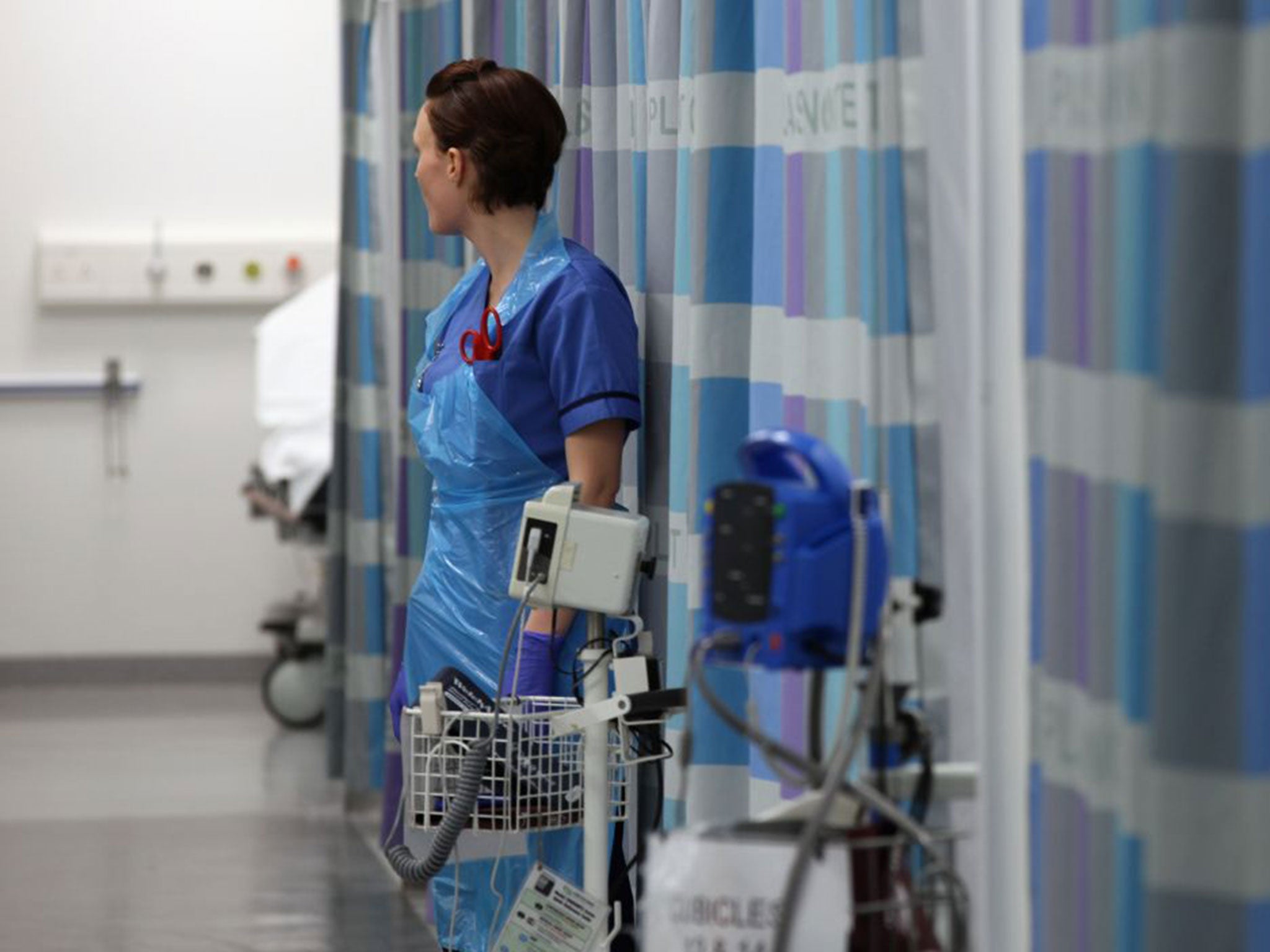Don’t rush to change the policy on testing for cervical cancer
You're much more likely to get an abnormal result if you're under 25


Only brave women make jokes during cervical screenings. If you can engage in witty repartee while your knees dangle off a crudely-made bed and a nurse approaches with an evil-looking tool devised to prise you open, you should probably consider joining the comedy circuit because no audience, no matter how drunk, will be a tougher crowd than your gynaecologist.
I am that brave woman. As I lay back, paper sheets sticking to my thighs, the smell of antiseptic in my nostrils, I announced with a wink and a giggle that I “usually have more fun in this position”. The nurse responded with a wry smile and left the comment hanging awkwardly in the air like my legs.
I hadn’t planned to have a smear test. The NHS Cervical Screening Programme in England offers free tests to all women aged between 25 and 64 who are registered with their GP. I’m only 23 but live in a south London borough where cervical screenings are available to sexually active women under the age of 25 because of high levels of cervical cancer in the area.
This, apparently, is the result of local women’s promiscuity, and when I read this week about an East Sussex woman called Dawn Weston, I might have been expected to be grateful to live in such an area. Three months ago, Ms Weston died of cervical cancer at the age of 26. When she was 24, she visited her GP with back pain and asked for a smear test. She was denied the procedure because she was under the age of 25. Only after repeated visits was she given the test but by then it was too late. Her husband is now campaigning to have the screening age lowered.
It’s a tragic case, but I can’t help feeling that Mr Weston’s campaign is as misdirected as it is well-intentioned. Lowering the cervical screening age would not be in the interests of young women, and here’s why.
I received my results last week. In a telephone conversation that lasted little more than two minutes, my doctor told me my test results showed I had some abnormal cells and he wanted to refer me to the hospital for further tests. It’s hard to describe what that moment feels like. Hot, shaky, sick. Embarrassed that my sexual history was written on my cervix. Furious with my body for misbehaving in this way. Unbidden by my rational mind, my panicked fingers typed “cervical cancer” into Google, fearing the worst.
I needn’t have worried. One in three women under the age of 25 will receive an abnormal result, compared to 1 in 14 women who are over 25. The changes in our young cervixes are so great at this age that doctors are likely to find abnormalities. Like me, my cervix hasn’t settled yet. It’s still a footloose and fancy-free twentysomething.
If we were to lower the screening age, just imagine the number of false-positive test results that would be posted out to young women who, like me, would react with terror and turn immediately to Dr Google, bile rising in their throats as they convinced themselves of the worst possible outcome before being sent to a hospital for invasive inspections and potentially harmful treatment.
There’d be a few instances, of course, where pre-cancerous cells would be caught and dealt with before the age of 25. These successes would be celebrated. But are they worth the unnecessary anxiety lowering the screening age would cause the majority of under-25s?
I’m not saying if a 22-year-old woman is displaying symptoms of cervical cancer she should be denied a smear test on account of her age. That would be ludicrous. But it’s very easy to become caught up in the gut-wrenching emotion of stories like Dawn’s. A blanket lowering of the screening age to incorporate girls whose flighty, erratic cervixes are more than likely to throw up abnormalities would be, at best, time-consuming and, at worst, mentally and physically damaging for young women.
Click here for more information on the NHS Cervical Screening Programme.
Join our commenting forum
Join thought-provoking conversations, follow other Independent readers and see their replies
Comments